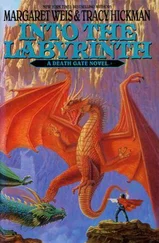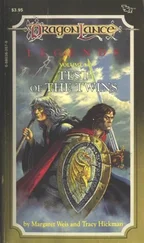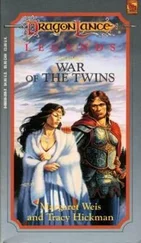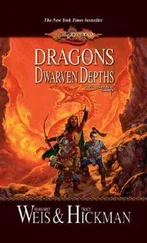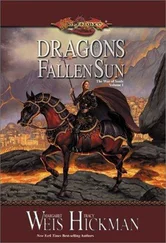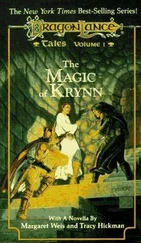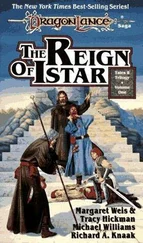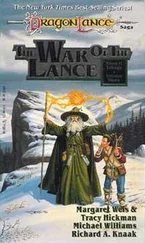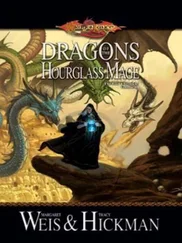Margaret Weis - Time of the Twins
Здесь есть возможность читать онлайн «Margaret Weis - Time of the Twins» весь текст электронной книги совершенно бесплатно (целиком полную версию без сокращений). В некоторых случаях можно слушать аудио, скачать через торрент в формате fb2 и присутствует краткое содержание. Жанр: Фэнтези, на английском языке. Описание произведения, (предисловие) а так же отзывы посетителей доступны на портале библиотеки ЛибКат.
- Название:Time of the Twins
- Автор:
- Жанр:
- Год:неизвестен
- ISBN:нет данных
- Рейтинг книги:5 / 5. Голосов: 1
-
Избранное:Добавить в избранное
- Отзывы:
-
Ваша оценка:
- 100
- 1
- 2
- 3
- 4
- 5
Time of the Twins: краткое содержание, описание и аннотация
Предлагаем к чтению аннотацию, описание, краткое содержание или предисловие (зависит от того, что написал сам автор книги «Time of the Twins»). Если вы не нашли необходимую информацию о книге — напишите в комментариях, мы постараемся отыскать её.
Time of the Twins — читать онлайн бесплатно полную книгу (весь текст) целиком
Ниже представлен текст книги, разбитый по страницам. Система сохранения места последней прочитанной страницы, позволяет с удобством читать онлайн бесплатно книгу «Time of the Twins», без необходимости каждый раз заново искать на чём Вы остановились. Поставьте закладку, и сможете в любой момент перейти на страницу, на которой закончили чтение.
Интервал:
Закладка:
A memory of Tika came to Caramon’s mind. He could hear her say those very words, laughing. It cut him like a knife. Glaring at Tas, he shoved the memory away immediately.
“Yeah,” he said bitterly, flushing, “you’re probably right. They’re having their joke on me. And I fell for it, too! But”—he lifted his head and, for the first time, looked around at the splendor of the Temple. He began to realize where he was—this holy place, this palace of the gods. Once more he felt the reverence and awe he had experienced as he stood gazing at it, bathed in Solinari’s radiant light—“you’re right—the gods have given us our sign!”
There was a corridor in the Temple where few came and, of those that did, none went voluntarily. If forced to come here on some errand, they did their business quickly and left as swiftly as possible.
There was nothing wrong with the corridor itself. It was just as splendid as the other halls and corridors of the Temple. Beautiful tapestries done in muted colors graced its walls, soft carpets covered its marble floors, graceful statues filled its shadowy alcoves. Ornately carved wooden doors opened off of it, leading to rooms as pleasingly decorated as other rooms in the Temple. But the doors opened no longer. All were locked. All the rooms were empty—all except one.
That room was at the very far end of the corridor, which was dark and silent even in the daytime. It was as if the occupant of this one room cast a pall over the very floor he walked, the very air he breathed. Those who entered this corridor complained of feeling smothered. They gasped for breath like someone dying inside a burning house.
This room was the room of Fistandantilus. It had been his for years, since the Kingpriest came to power and drove the magic-users from their Tower in Palanthas—the Tower where Fistandantilus had reigned as Head of the Conclave.
What bargain had they struck—the leading powers of good and of evil in the world? What deal had been made that allowed the Dark One to live inside the most beautiful, most holy place on Krynn? None knew, many speculated. Most believed it was by the grace of the Kingpriest, a noble gesture to a defeated foe.
But even he—even the Kingpriest himself—did not walk this corridor. Here, at least, the great mage reigned in dark and terrifying supremacy.
At the far end of the corridor stood a tall window. Heavy plush curtains were drawn over it, blotting out the sunlight in the daytime, the moons’ rays at night. Rarely did light penetrate the curtains’ thick folds. But this night, perhaps because the servants had been driven by the Head of Household to clean and dust the corridor, the curtains were parted the slightest bit, letting Solinari’s silver light shine into the bleak, empty corridor. The beams of the moon the dwarves call Night Candle pierced the darkness like a long, thin blade of glittering steel.
Or perhaps the thin, white finger of a corpse, Caramon thought, looking down that silent corridor. Stabbing through the glass, the finger of moonlight ran the length of the carpeted floor and, reaching the length of the hall, touched him where he stood at the end.
“That’s his door,” the kender said in such a soft whisper Caramon could barely hear him over the beating of his own heart. “On the left.”
Caramon reached beneath his cloak once more, seeking the dagger’s hilt, its reassuring presence. But the handle of the knife was cold. He shuddered as he touched it and quickly withdrew his hand.
It seemed a simple thing, to walk down this corridor. Yet he couldn’t move. Perhaps it was the enormity of what he contemplated—to take a man’s life, not in battle, but as he slept. To kill a man in his sleep—of all times, the time we are most defenseless, when we place ourselves in the hands of the gods. Was there a more heinous, cowardly crime?
The gods gave me a sign, Caramon reminded himself, and sternly he made himself remember the dying Barbarian. He made himself remember his brother’s torment in the Tower. He remembered how powerful this evil mage was when awake. Caramon drew a deep breath and grasped the hilt of the dagger firmly. Holding it tightly, though he did not draw it from his belt, he began to walk down the still corridor, the moonlight seeming now to beckon him on.
He felt a presence behind him, so close that, when he stopped, Tas bumped into him.
“Stay here,” Caramon ordered.
“No—” Tas began to protest, but Caramon hushed him.
“You’ve got to. Someone has to stand on watch at this end of the corridor. If anyone comes, make a noise or something.”
But—
Caramon glared down at the kender. At the sight of the big man’s grim expression and cold, emotionless glare, Tas gulped and nodded. “I-I’ll just stand over there, in that shadow.” He pointed and crept away.
Caramon waited until he was certain Tas wouldn’t “accidentally” follow him. But the kender hunched miserably in the shadow of huge, potted tree that had died months ago. Caramon turned and continued on.
Standing next to the brittle skeleton whose dry leaves rustled when the kender moved, Tas watched Caramon walk down the hallway. He saw the big man reach the end, stretch out a hand, and wrap it around the door handle. He saw Caramon give it a gentle push. It yielded to his pressure and opened silently. Caramon disappeared inside the room.
Tasslehoff began to shake. A horrible, sick feeling spread from his stomach throughout his body, a whimper escaped his lips. Clasping his hand over his mouth so that he wouldn’t yelp, the kender pressed himself up against the wall and thought about dying, alone, in the dark.
Caramon eased his big body around the door, opening it only a crack in case the hinges should squeak. But it was silent. Everything in the room was silent. No noise from anywhere in the Temple came into this chamber, as if all life itself had been swallowed by the choking darkness. Caramon felt his lungs burn, and he remembered vividly the time he had nearly drowned in the Blood Sea of Istar. Firmly, he resisted the urge to gasp for air.
He paused a moment in the doorway, trying to calm his racing heart, and looked around the room. Solinari’s light streamed in through a gap in the heavy curtains that covered the window. A thin sliver of silver light slit the darkness, slicing through it in a narrow cut that led straight to the bed at the far end of the room.
The chamber was sparsely furnished. Caramon saw the shapeless bulk of a heavy black robe draped over a wooden chair. Soft leather boots stood next to it. No fire burned in the grate, the night was too warm. Gripping the hilt of the knife, Caramon drew it slowly and crossed the room, guided by the moon’s silver light.
A sign from the gods, he thought, his pounding heartbeat nearly choking him. He felt fear, fear such as he had rarely experienced in his life—a raw, gut-wrenching, bowel-twisting fear that made his muscles jerk and dried his throat. Desperately, he forced himself to swallow so that he wouldn’t cough and wake the sleeper.
I must do this quickly! he told himself, more than half afraid he might faint or be sick. He crossed the room, the soft carpet muffling his swift footsteps. Now he could see the bed and the figure asleep within it. He could see the figure clearly, the moonlight slicing a neat line across the floor, up the bedstead, over the coverlet, slanting upward to the head lying on the pillow, its hood pulled over the face to blot out the light.
“Thus the gods point my way,” Caramon murmured, unaware that he was speaking. Creeping up to the side of the bed, he paused, the dagger in his hand, listening to the quiet breathing of his victim, trying to detect any change in the deep, even rhythm that would tell him he had been discovered.
Читать дальшеИнтервал:
Закладка:
Похожие книги на «Time of the Twins»
Представляем Вашему вниманию похожие книги на «Time of the Twins» списком для выбора. Мы отобрали схожую по названию и смыслу литературу в надежде предоставить читателям больше вариантов отыскать новые, интересные, ещё непрочитанные произведения.
Обсуждение, отзывы о книге «Time of the Twins» и просто собственные мнения читателей. Оставьте ваши комментарии, напишите, что Вы думаете о произведении, его смысле или главных героях. Укажите что конкретно понравилось, а что нет, и почему Вы так считаете.

